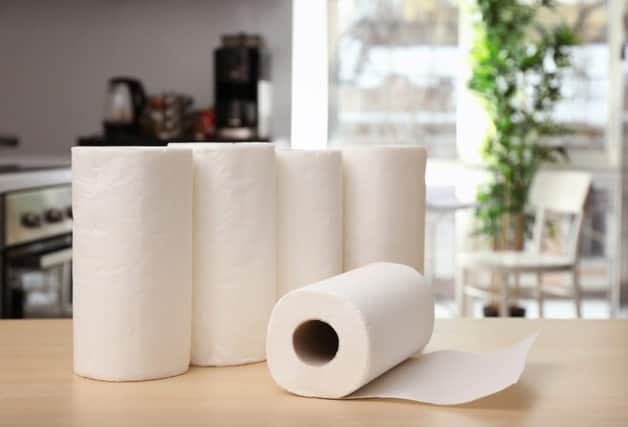This is why you shouldn’t flush kitchen roll or wet wipes down the toilet


With the Covid-19 strain of coronavirus continuing to spread, some people have taken to clearing supermarket shelves, panic buying essentials that they might need while in isolation - most notably, toilet paper.
With toilet paper becoming harder to come by, members of the public have been forced to consider alternative options, like using kitchen roll to wipe - but flushing kitchen roll down the toilet can lead to a myriad of problems.
Why can’t I flush kitchen roll?
Advertisement
Hide AdAdvertisement
Hide AdWhen items that aren’t toilet paper are flushed down the toilet, it leads to the creation of something called a ‘fatberg’.
Thames Water defines a fatberg as “a very large mass of solid waste in a sewerage system, consisting of things such as congealed fat, oils and sanitary products that have been put down the drains or flushed down the toilet”.
The utility company states that sewer systems are only designed for “water, toilet paper and human waste”, and the sewers cannot cope when items outside of that list are flushed.
Things like kitchen roll, wet wipes and other items not designed to be flushed create a “gluey mass” and as this mass builds, it eventually causes major blockages in the sewage network.
Fatbergs cause ‘chaos and increased health risks’
Advertisement
Hide AdAdvertisement
Hide AdRichard Wilding, a professor of supply chain strategy at Cranfield School of Management, said, “We are seeing shortages of toilet paper but worryingly also shortages of paper kitchen towels and industrial paper towels used, for example, in garages and workshops and other wipe products.
“If kitchen towels, baby wipes or industrial papers are used as a replacement for toilet paper, our sewage systems could readily become blocked with the resulting chaos and increased health risks associated with this.
“Ultimately, water companies may not have the infrastructure and equipment to unblock the sewer system.”
Fatbergs are crawling with potentially infectious bacteria, like listeria and E coli, which doesn’t just pose a risk to those who work in the sewers, but also to the wider public in the event that the blockage results in sewage waste coming back up through pipes in homes.
Are there any safe alternatives to toilet roll I can flush?
Advertisement
Hide AdAdvertisement
Hide AdAs it stands, there aren’t any safely flushable alternatives to toilet paper, but there are some other ways to keep clean when you’ve got no toilet paper.
You could consider getting a bidet installed, which is fitted to your toilet and uses water to clean you after going to the toilet.
If you don’t want to get a bidet installed, you can always just hop in the shower after using the toilet, instead.
Alternatively, reusable fabric toilet wipes are also an option - similar to reusable fabric nappies, they’re soft squares of fabric that can be washed after use.